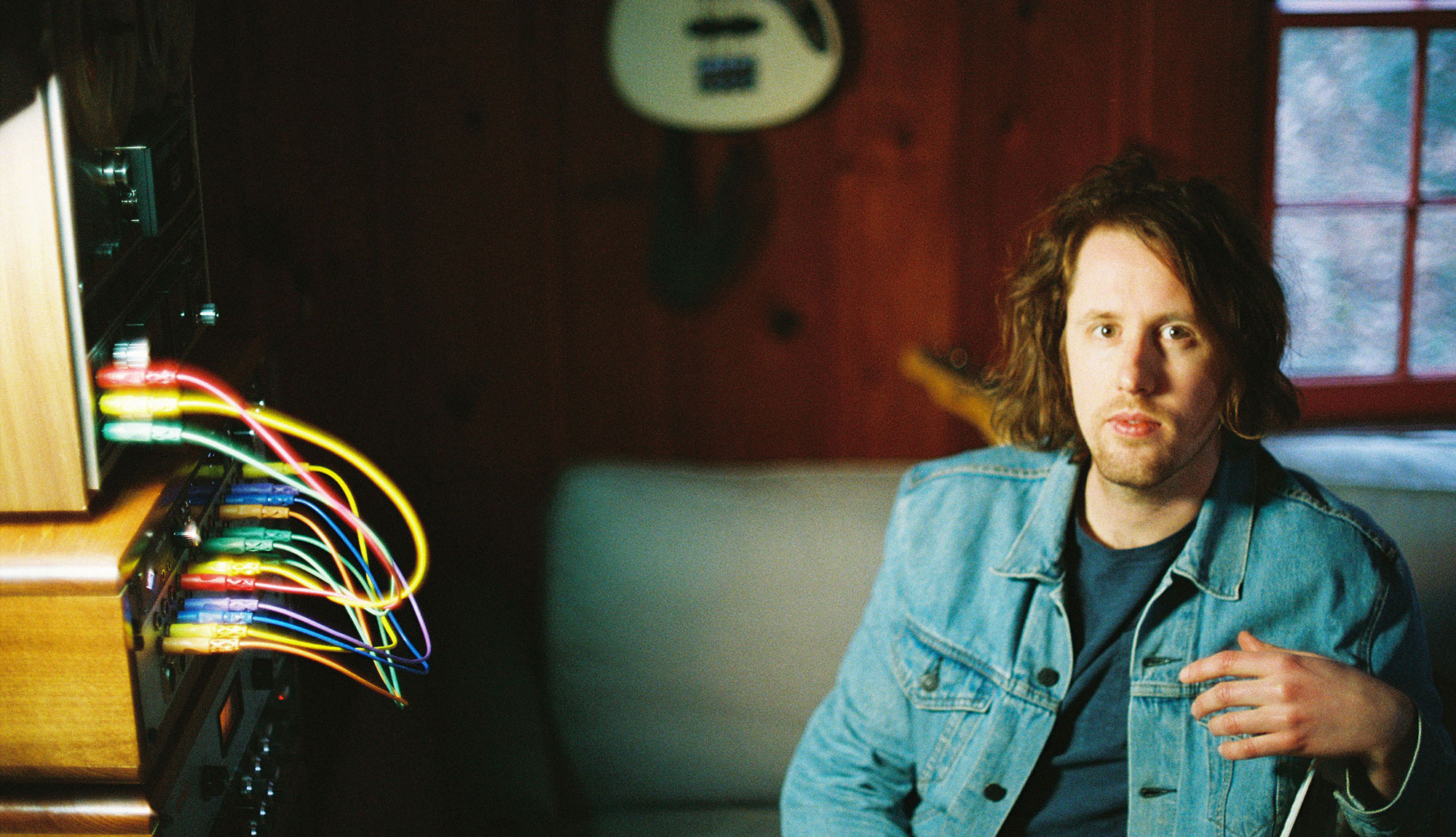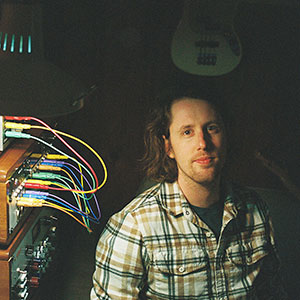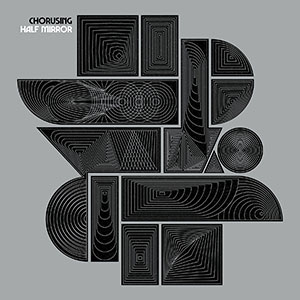Chorusing
On his debut album Half Mirror, Matthew O’Connell superimposes warm analog synths onto self-described “confessional folk” with a simultaneously cosmic and earthly outcome. Tracked at home in the mountains of North Carolina using a vintage tape delay, electric guitar, and a self-designed synthesizer named ‘Balsam,’ Half Mirror is at once a lonesome push-pull of electronics humanized by folk elements, and folk music made alien by electronic adornments. O’Connell’s own story is just as captivatingly segmented. While growing up on a farm in Palmyra, Indiana, he became obsessed with metal drumming and spent most of his free time practicing in the garage, occasionally recording on four-track tape machines with his brothers Joe (Elephant Micah) and Greg. Reflecting on those formative years, O’Connell says, “I think that period instilled two things in me: a long attention span, and the ability to work obsessively on something in solitude.” It’s these monastic inclinations that helped form the spirit of Half Mirror.
Once he was old enough to drive, O’Connell started making trips south to Louisville, Kentucky, where he fell in love with the punk and hardcore scene and joined his first bands. “It’s not the type of music I play anymore, but it’s still very much a presence in how I think about music and what I want to do with it,” he explains. “It's so pure and unself-conscious, felt in the body and not in the head.” Though he continued playing in punk bands in Louisville, he also began writing his own songs, some of which made their way onto Half Mirror 10 years later.
While in college, his interest in math led him to participate in a six-month intensive study program in Budapest, Hungary. There, he continued writing song fragments on a borrowed guitar and fiddling with musical electronics at the Kitchen Budapest—a collective of artists, theorists, and coders. In 2011, his interest in electronics and engineering led him to Asheville, North Carolina, where he worked for Moog Music calibrating and building synthesizers, and testing vintage analog delay chips by day. At night he would spend his time building homemade synths and writing songs. It was here in Asheville that he began the bulk of the work on Half Mirror, imbuing his music with the qualities of his environment almost by necessity.
The album opens with the spare meta-song “Cold,” on which O'Connell repeats, “I wade in,” referring to himself wading into his own memories. On “Midday Sun,” he sings, “Wide-eyed in the midday sun” over an eerily ascending and descending electric guitar and tightly layered instrumentation, inspired obliquely by the Louisville post-hardcore band Young Widows. “Sprawled out on the floor / Heavy from the nights before,” he continues, a chastened recalling of hungover anxiety. It’s tempered by tracks like “Whitewaterside,” which describes with meditative awareness the sensation of setting bare feet into a cold river. On Half Mirror standout “Watching the Beams,” he channels a panic attack he had on a stalled subway train while en route to a gig in Brooklyn: the relentless arpeggiator mirrors his rapid heartbeat as it becomes subsumed by the pulse of the city. On “Ohio,” O’Connell recounts evenings sitting by the Ohio River in Louisville, drinking bourbon with a friend as the barges floated by like memories drifting through the mind. The album’s closing track “Mirror” serves as an epilogue, like a rose-colored moon that drops below the horizon to be extinguished by distant sands.
O’Connell made a deliberate effort to keep the album's production sparse. His interest in restraint stems in part from his love of albums like Nearly God by Tricky and Ghost Tropic by Songs: Ohia, both of which feature uncomfortably bare vocals and uncanny production that commands the listener’s attention. Additional inspiration came from Mark Hollis' striking minimalism, and the freeform songwriting of Arthur Russell and John Martyn. This skillful incorporation of influences evokes the same sense of balance and natural grace O’Connell may have gleaned in his physics and math studies;in fact, Half Mirror’s cover bears a visual translation of its songs’ waveforms.
When pressed about the meaning of the album’s title, O’Connell says, “Almost all of the songs are retrospective, and Half Mirror is a metaphor for trying to reflect on experiences in an incomplete or unsatisfactory way. Or maybe it’s the paradox of trying to relive something outside of the moment it was actually experienced.” Filtering the poetry of fractured, imperfect memories through a lush, yet sparse palette of sounds, Half Mirror evokes a profoundly moody sense of place: the fog heavy in the mountain peaks, the dew present on early morning walks, and the musky smell of rhododendrons in the air.


